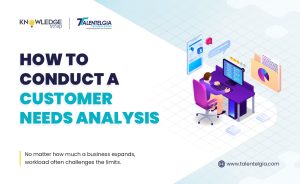Do you ever wonder how your favorite apps actually work? We’re here to help you better understand the different types of web applications and their uses, in a way that’s easy to follow and relatable. Whether you’re a business owner or just a curious individual, we’ve got you covered.
A web application is a software system that performs tasks through an interactive user interface. The software programs run on the internet-based web browser or web technologies and standards of the W3C (World Wide Web Consortium).
The web application runs on a web server; that’s why it’s not the same as computer-based software programs that are operated on the OS(operating system) of a device.
Whenever you visit a website and perform any “action” online means you use web-based applications. Since the rise of using the internet & digital content, the majority of desktop applications have turned into modern web applications.
It means no more free space issues on your hard disk, no more heavy software packs only direct access to your required applications.
In this blog post, we will explain the various types of web applications and their uses, with examples of popular web apps that you may have used or heard of.
We will also mention how Talentelgia, the best web app development service provider can help you create engaging and user-friendly web applications for your needs.
Types of Web Apps – How to Simplify Your Business?
The list below presents a list of the most used websites in terms of functionalities, usage/advantages/disadvantages. You can define an app based on your requirements. There are different types of applications or categories of web applications depending on the user types or business needs. But all application types are not known to us properly.
So, here we have described the 11 most common web applications based on their functionalities, use cases & benefits. In that manner, you can define a web app that will meet your business requirements the most.
| Application Type | Industry Uses | Advantages |
| Static Web Apps | Book publishing company | Works really well in offline mode No need to install 3rd party software to access the web app |
| Dynamic Web Apps | Social media IT Industry Healthcare Retail & E-commerce Transportation & logistics On-demand | Manage the website directly to change and update the information Easy user management to protect your server and manage all the users on the website |
| Single Page Apps | Email service Communication industry | Allows optimized routing and navigation experience Helps to keep the consistent visual structure of the web application using presentation logic |
| Multiple Page Apps | Enterprise industries E-commerce industries | Allows optimizing each page for search engines Lets users access different pages with the click of their mouse |
| Animated Web Apps | Animation Education Game | Hold people’s attention for a long time because of its unique design and attractive approach Aspect ratios, portrait, and landscape orientations, as well as different pixel densities and viewing distances, are considered |
| Content Management System | Blogging Platforms Marketing and Sales Platform News Portals | Organizes the website content easily Offers user and group functionality Get the group and user functionalities Easy language integration and support |
| E-commerce Apps | E-commerce businesses | Allows businesses to sell goods using a single platform Expand your business globally by reaching maximum audience |
| Portal Web Apps | Student or faculty portal Government portal Banking portal Job portal News portal etc. | Provides a single point of access to various information and services Allows users to customize their preferences and settings Enables secure authentication and authorization |
| Progressive Web Apps | Any industry that wants to offer a native app-like experience without requiring installation or app store approval | Works offline or on low-quality networks Loads faster and consumes less data Enhances user engagement and retention with push notifications and home screen icons |
| Microservices Web Apps | Any industry that wants to build scalable and resilient web applications with independent components | Enables faster development and deployment Reduces complexity and dependencies Improves performance and reliability Allows flexibility and innovation |
FAQs: Common Questions About Web Applications and Their Uses
Here are some common questions that people may have about web applications and their uses:
What 3 components do most web applications rely on?
Most web applications rely on 3 components:
- A web browser: This is the software that the user uses to access the web application. It interprets the HTML code and displays the content on the screen. Examples of web browsers are Google Chrome, Firefox, Safari, etc.
- A web server: This is the software that hosts the web application on a remote computer or network. It receives requests from the web browser and sends back responses with the requested data or content. Examples of web servers are Apache, Nginx, IIS, etc.
- A database: This is the software that stores and organizes the data or information used by the web application. It allows the web application to create, read, update, and delete data as needed. Examples of databases are MySQL, MongoDB, Oracle, etc.
What are the important parts of a web application?
The important parts of a web application are:
- The user interface (UI): This is the part that the user sees and interacts with on the screen. It consists of elements such as text, images, buttons, menus, forms, etc. The UI should be clear, attractive, and easy to use.
- The user experience (UX): This is the part that affects how the user feels and thinks about using the web application. It involves aspects such as usability, functionality, performance, reliability, security, etc. The UX should be satisfying, enjoyable, and meaningful.
- The functionality: This is the part that defines what the web application can do and how it works. It involves aspects such as logic, algorithms, data processing, validation, error handling, etc. The functionality should be accurate, efficient, and consistent.
What are common examples of Web applications?
Some common examples of Web applications are:
- Online shopping: These are web applications that allow users to buy and sell goods or services online. Examples are Amazon.com eBay Etsy etc.
- Email: These are web applications that allow users to send receive and manage electronic messages online. Examples are Gmail Yahoo Mail Outlook etc.
- Social networking: These are web applications that allow users to create profiles connect with other users share content and communicate online. Examples are Facebook Twitter Instagram etc.
- Gaming: These are web applications that allow users to play games online either alone or with other players. Examples are Fortnite Candy Crush Minecraft etc.
- Education: These are web applications that allow users to learn new skills take courses or access educational resources online. Examples are Khan Academy Coursera Duolingo etc.
Conclusion
Web applications are software systems that run on a remote server and are accessed by users through a web browser. They offer many advantages over traditional desktop software such as compatibility accessibility scalability and interactivity.
There are different types of web applications depending on their purpose functionality and design. Some common types are static dynamic e-commerce enterprise and animated web apps.
Web applications can be used for various purposes such as online shopping email social networking gaming education and business.
If you want to create your own web application or improve your existing one you need to consider several factors such as your target audience your goals your budget your timeline your technology stack etc.
You also need to hire professional web app development service providers who can help you design an engaging and user-friendly interface for your web application.
Talentelgia UX/UI designing services offer the best experts who can help you create stunning and effective web applications for your needs.
They have experience in working with different types of web applications across various industries and domains.
They can help you incorporate user feedback research best practices usability testing prototyping wireframing mockups etc into your design process.
They can also help you optimize your web application for performance security SEO accessibility etc.
If you want to know more about Talentelgia’s web app development services or get a free quote for your project contact them today at info@talentelgia.in







